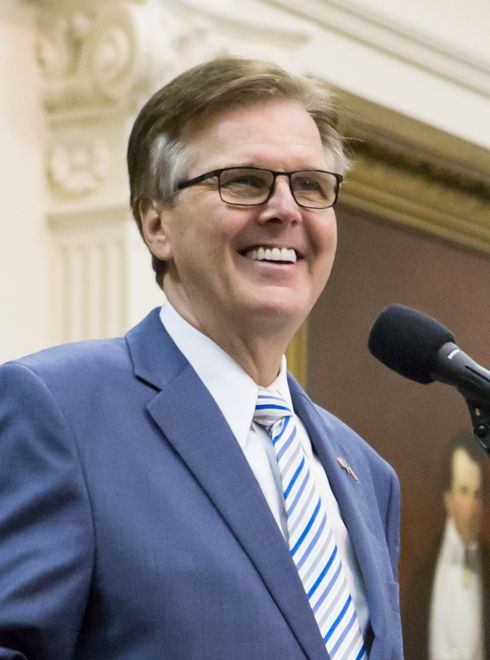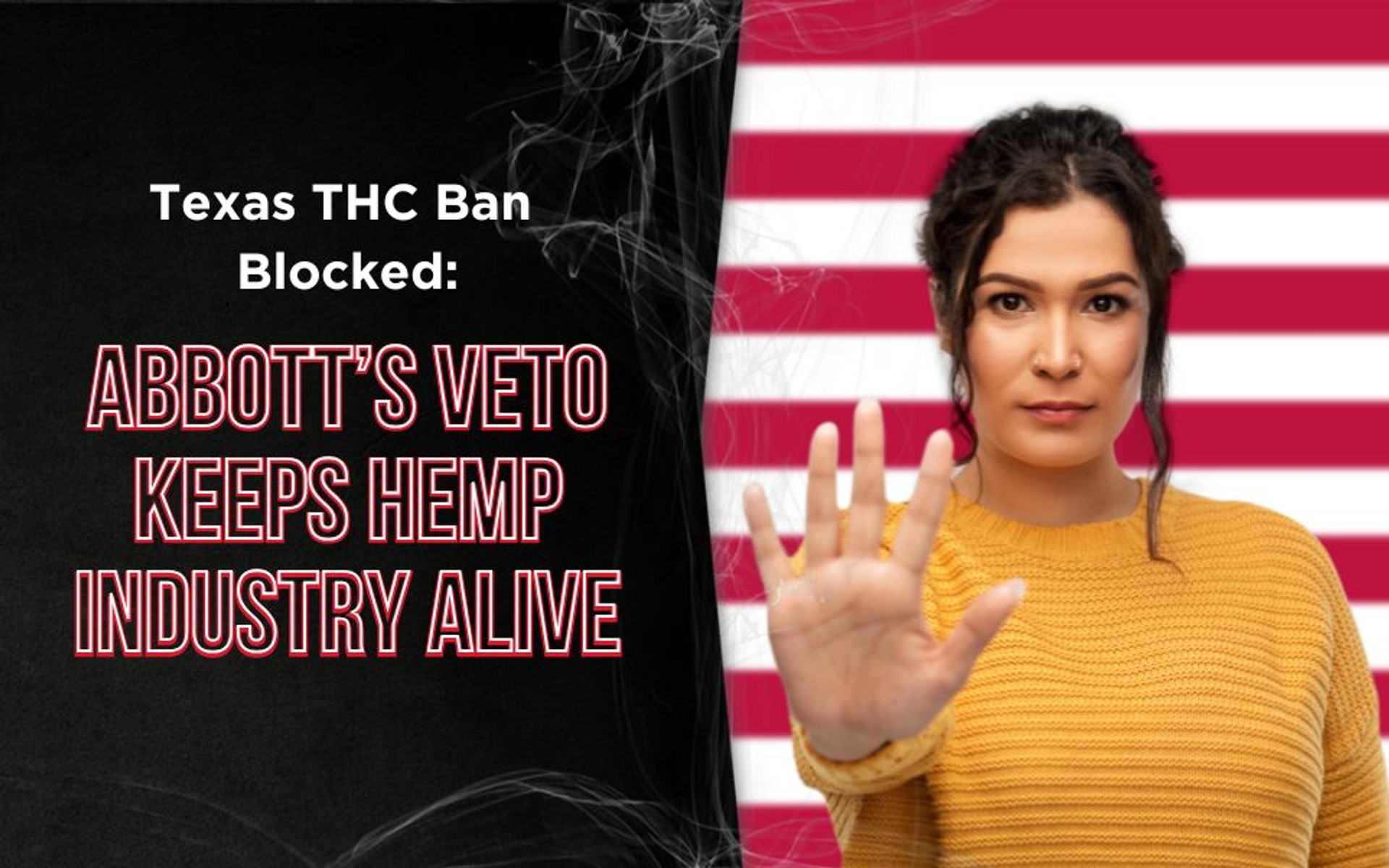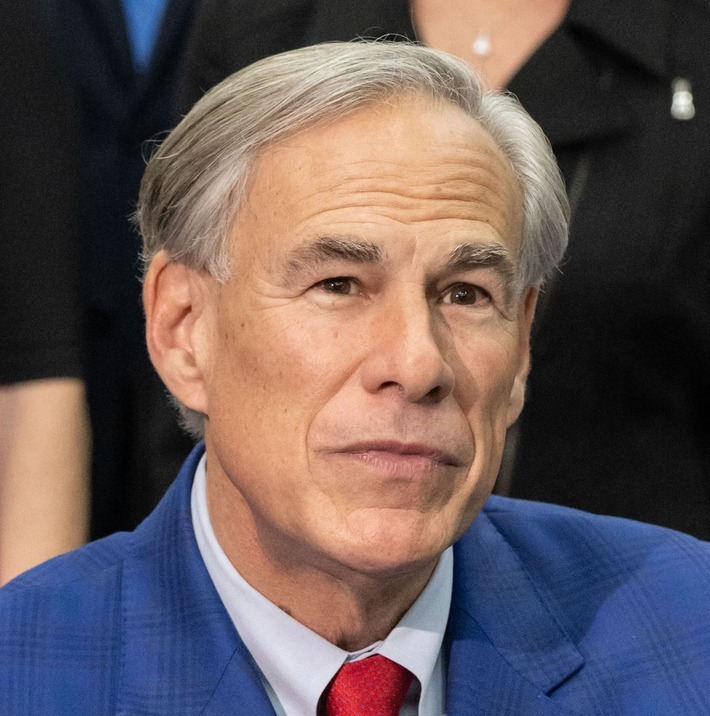Abbott’s Last-Minute Veto Keeps Texas Hemp Industry Alive, and Kicks the THC Fight to a July Special Session
Estimated 0 min read
Minutes before the constitutional veto deadline on June 22, Gov. Greg Abbott shocked lawmakers by rejecting Senate Bill 3 (SB 3), a measure that would have outlawed all hemp-derived products containing any amount of THC, including popular delta-8 and delta-9 gummies, drinks, and vapes. Instead, Abbott told the Legislature to return on July 21 and write “a constitutionally durable regulatory bill” rather than a flat-out ban.
Table of Contents
- Key Points
- The Veto and Proposed Regulations
- Reactions and Controversy
- Future Implications
- Survey Note: Detailed Analysis of Governor Abbott's THC Ban Veto and Its Implications
- Background and Context
- The Veto Decision and Legal Considerations
- Political Fallout, Public Health, and What Comes Next
- Comparative Analysis of Stakeholder Positions
- What Vape Shop Owners and Distributors Need to Know
- Conclusion
Key Points
- Governor Greg Abbott vetoed a bill to ban THC products in Texas on June 22, 2025, citing legal concerns.
- He called for a special session to regulate THC, proposing measures like age restrictions and safety testing.
- This decision has sparked controversy, with Lt. Gov. Dan Patrick opposing it, while the hemp industry supports it.
- The issue is complex, with economic, health, and political implications, and the outcome remains uncertain.
The Veto and Proposed Regulations
Abbott's veto was based on concerns about constitutionality and potential legal battles, which he believed would delay addressing public safety issues. Instead, he called for a special legislative session to begin on July 21, 2025, to establish a regulatory framework. His proposals include:
- Banning sales to minors, making it a crime.
- Requiring strict product safety testing.
- Prohibiting marketing that appeals to children.
These measures aim to strike a balance between public safety and the economic benefits of the hemp industry, which has experienced significant growth since 2019.
Reactions and Controversy
Lt. Gov. Patrick strongly criticized the veto, accusing Abbott of abandoning law enforcement and families affected by THC products. He claimed Abbott wants to legalize recreational marijuana, a claim Abbott's office denies. In contrast, the hemp industry, including the Texas Hemp Business Council and Hemp Industry & Farmers of America, welcomed the veto, ready to collaborate on regulations like age limits and safe distances from schools.
Future Implications
This veto has highlighted political tensions within Texas's Republican leadership, with both Abbott and Patrick up for re-election in 2026. Democrats may use this issue to mobilize voters, but its electoral impact is uncertain. The special session will be crucial in shaping Texas' approach to THC regulation, with potential implications for public safety, economics, and politics.
Survey Note: Detailed Analysis of Governor Abbott's THC Ban Veto and Its Implications
On June 22, 2025, Texas Governor Greg Abbott made a significant decision by vetoing Senate Bill 3, a bill that would have imposed a comprehensive ban on consumable hemp products containing THC, including delta-8 and delta-9. This action, announced just before the veto deadline, has preserved the state's booming hemp industry—at least temporarily—and has ignited a political and public debate with far-reaching implications.
This survey note provides a detailed examination of the veto, the proposed regulations, reactions from key stakeholders, and the potential future impacts, ensuring a comprehensive understanding for readers.
Background and Context
The hemp industry in Texas has seen remarkable growth since its legalization in 2019, driven by the 2018 federal Farm Bill. Currently, it supports over 8,000 retailers, 50,000 jobs, and generates an estimated $8 billion in annual tax revenue. Senate Bill 3, proposed by Lt. Gov. Dan Patrick, aimed to ban all THC-containing hemp products, citing public safety concerns, particularly the accessibility of these products to children.
Patrick, in his 17-year tenure, had made this bill one of his top five legislative priorities, actively promoting it through visits to cannabis shops and creating informal investigative videos, referring to THC products like gummies, vapes, and beverages as "poison in our public," Houston Public Media.
However, the bill faced significant opposition from veterans, farmers, and chronic pain patients, who highlighted the therapeutic benefits of hemp-derived THC products, including their role in reducing opioid dependency. This opposition underscored the economic and health stakes involved, setting the stage for a contentious legislative battle.
The Veto Decision and Legal Considerations
Governor Abbott, who had remained publicly silent on the issue during the legislative session, vetoed Senate Bill 3 late on June 22, 2025. In his veto statement, he cited concerns over the constitutionality of a total THC ban, referencing a 2023 federal district court ruling that blocked a similar law in Arkansas due to conflicts with the 2018 federal Farm Bill Houston Public Media Abbott argued that enforcing the ban would likely lead to lengthy legal battles, rendering it "dead on arrival in court," and would hinder rather than help address public safety issues. He emphasized the current market's dangerous under-regulation, with children particularly at risk, stating, "Texas cannot afford to wait" for resolution.
Instead of a ban, Abbott called for a special legislative session beginning July 21, 2025, to craft a regulatory framework modeled after alcohol laws. His specific proposals include:
- Prohibiting the sale and marketing of THC products to minors, making it a crime.
- Mandating strict product testing throughout the supply chain to ensure safety.
- Allowing local governments to ban retail THC sales, providing community-level control.
- Allocating funds for law enforcement to enforce these regulations effectively.
- Prohibiting marketing of THC products likely to appeal to children, such as those with child-friendly packaging or imagery.
These measures aim to address public safety concerns while preserving the economic benefits of the hemp industry, reflecting a nuanced approach to regulation.
Political Fallout, Public Health, and What Comes Next
Governor Abbott's veto has intensified the political rift within the state’s Republican leadership, with both Abbott and Lt. Gov. Patrick staking out opposing positions ahead of the 2026 elections. Patrick’s accusations that Abbott abandoned law enforcement and grieving families sparked strong reactions, while Abbott’s supporters hailed his push for a constitutional, regulatory framework.

Beyond politics, the veto has far-reaching public health and economic consequences. Texas’s hemp industry supports over 50,000 jobs and 8,000 retailers and generates $8 billion in annual tax revenue. A complete ban could have triggered widespread layoffs and economic disruption. At the same time, advocates for public safety continue to warn about the risks to minors, as current Texas law still lacks any minimum age requirement for purchasing THC products.
With the special session starting July 21, legislators face a high-stakes challenge: craft a policy that addresses safety without gutting an industry that veterans, pain patients, and small businesses rely on. Whatever emerges will shape Texas’s future approach to THC regulation, and possibly influence similar debates nationwide.
Comparative Analysis of Stakeholder Positions
To provide a structured overview, the following table summarizes the key positions of major stakeholders:
This table highlights the diverse perspectives, underscoring the complexity of the issue.
| Stakeholder | Position on Veto | Key Arguments |
|---|---|---|
| Governor Greg Abbott | Supports veto, calls for regulation | Legal concerns; need for regulation to address safety; economic preservation |
| Lt. Gov. Dan Patrick | Opposes veto, supports ban | Public safety; protection of children; accuses Abbott of abandoning families |
| Texas Hemp Business Council | Supports veto | Economic benefits; readiness for collaboration on regulations |
| Hemp Industry & Farmers | Supports veto | Therapeutic benefits; proposes age limits; safety measures |
| Veterans, Farmers, Patients | Supports veto | Therapeutic benefits; opioid reduction |
| Law Enforcement, Educators | Opposes veto, supports ban | Public safety; concerns about youth access |
What Vape Shop Owners and Distributors Need to Know
If you operate a vape shop or work as a distributor in Texas, the veto of SB 3 offers a temporary sigh of relief, but it also signals big changes ahead. With the July 21 special session approaching, THC vape products such as delta-8 and delta-9 disposables, gummies, and tinctures may soon face new packaging, testing, and marketing rules. It's essential to stay ahead of compliance updates to avoid disruptions to your wholesale supply chain.
Distributors and retailers should start reviewing product lines now. Look for items that already meet stricter safety and labeling standards.
Conclusion
Governor Abbott's veto of Senate Bill 3 on June 22, 2025, marks a pivotal moment in Texas's approach to THC regulation. By opting for regulation over a ban, Abbott has opened the door for a nuanced approach that seeks to balance public safety with economic and therapeutic benefits. The upcoming special session will be critical in shaping the future, with significant implications for Texas's political, economic, and health landscapes. This decision, while controversial, reflects the ongoing tension between state and federal law, stakeholder interests, and the evolving nature of hemp policy in the United States.









